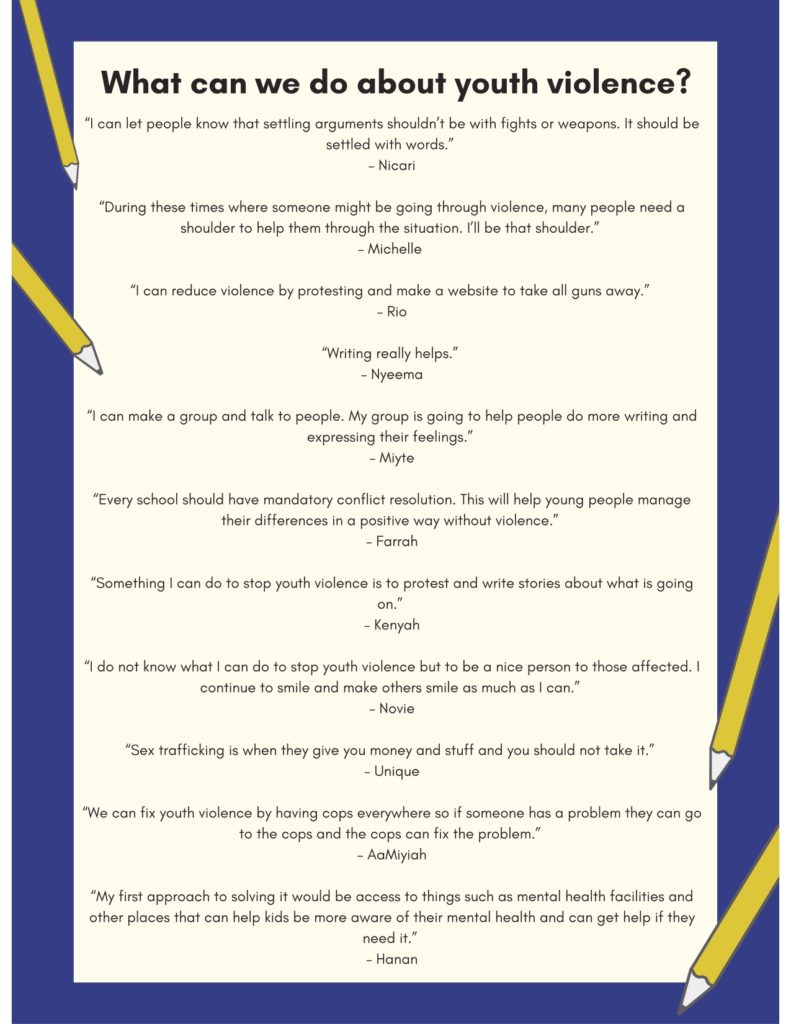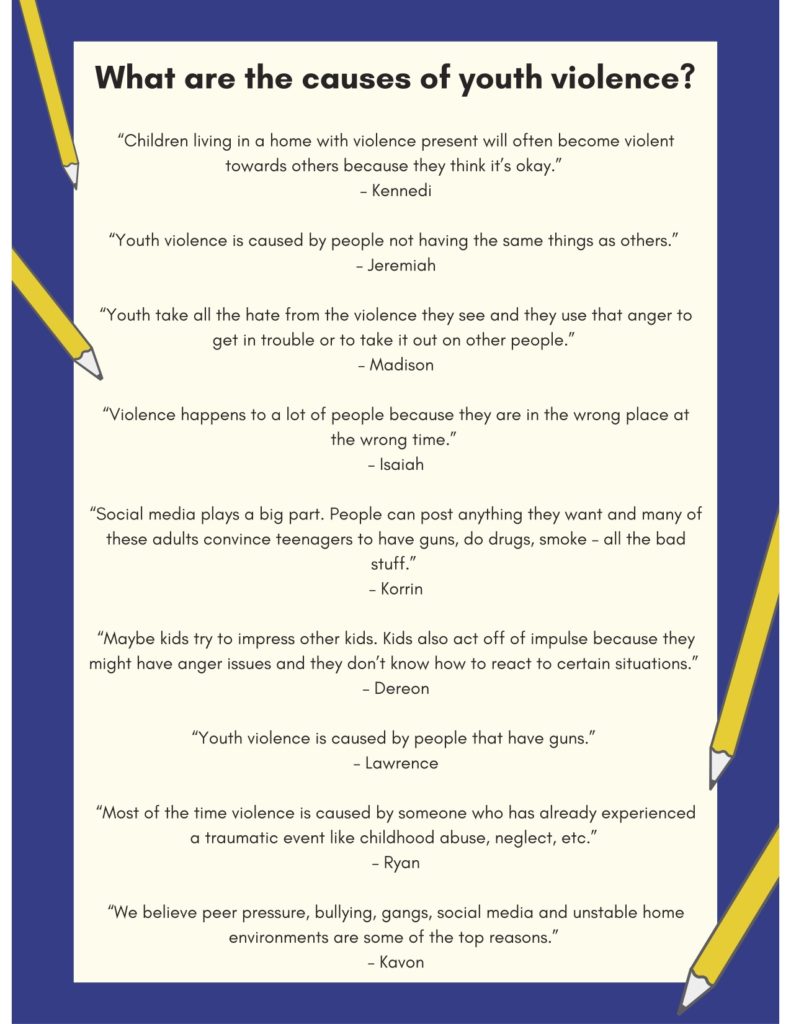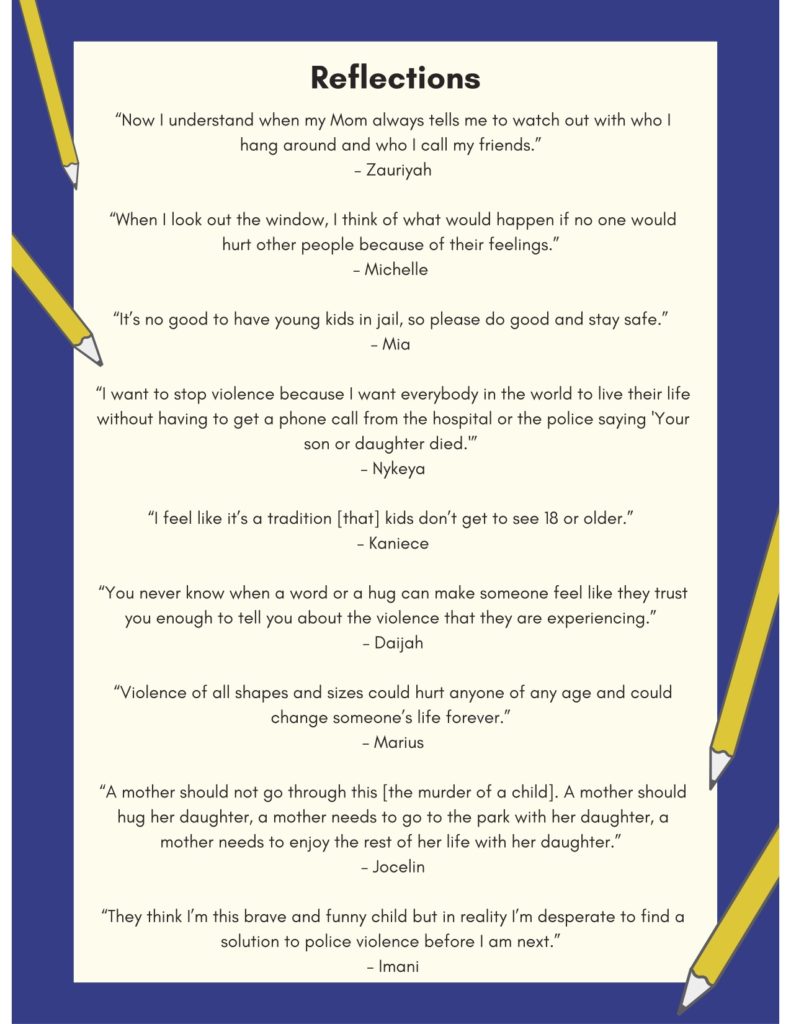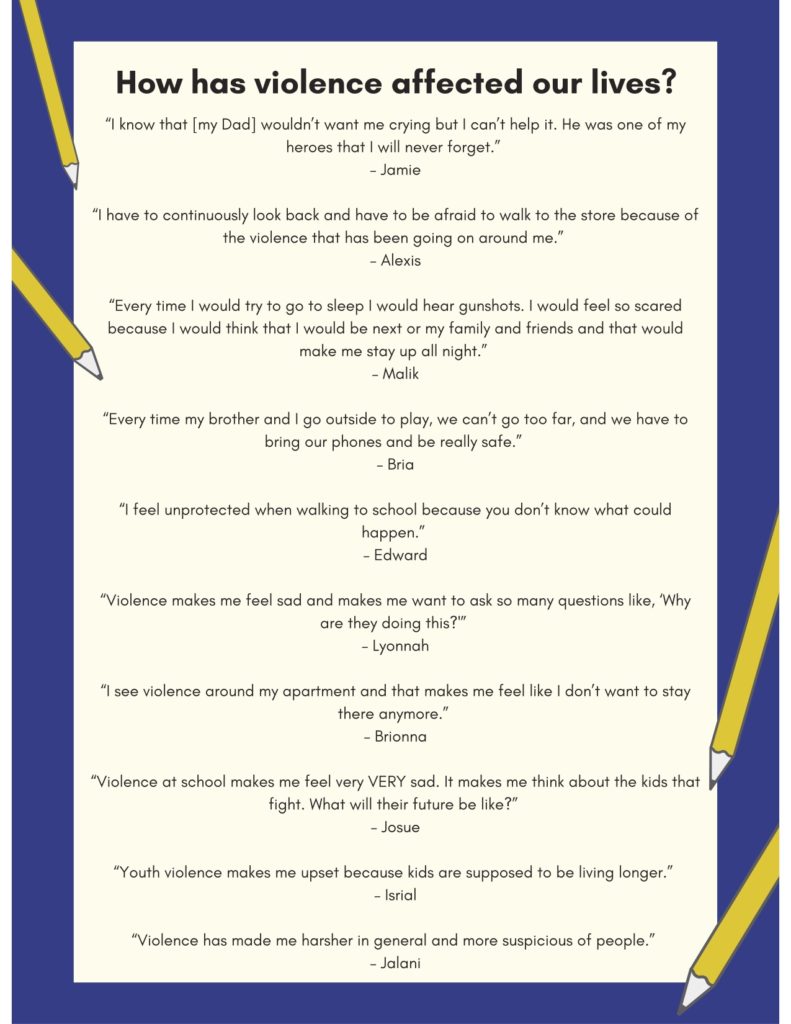
AG’s essay contest gives DC middle schoolers a forum to talk about impact of community violence
Right after the workday ended, dozens of local policymakers and community leaders convened in the Old Council Chambers at One Judiciary Square for a meeting convened by DC Attorney General Karl Racine. Snacking and socializing, they were excited to hear a panel of speakers discuss pressing socioeconomic issues plaguing the District.
The lineup was especially exclusive: It was composed entirely of middle school students.
The students had come out on April 23 to share their thoughts on local social justice issues as part of the third annual event held by the Office of the Attorney General (OAG) to recognize DC participants in the Do the Write Thing Challenge, a national essay contest. The program serves as an outlet for young people to express, through discussion and writing, how violence affects them and their peers on a daily basis.
One overarching goal is to help policymakers better understand youth violence. First and foremost, though, Do the Write Thing functions as a safe space for middle-schoolers to explore their personal experiences with crime and the confusing, often volatile, emotions that can arise.

“At its center, it puts kids first and then has kids try as best they can to articulate their feelings. That process of articulating feeling is an important thing because it lets kids know their voice matters,” Racine explained.
Ask Aliyah Harrison, a seventh-grader at West Education Campus in Ward 4 and a bright young writer who was named a winner of this year’s Do the Write Thing competition.
The challenge, Harrison said, “has helped me express [my feelings] because sometimes it’s hard to talk about. … When I write, I just let it all go.”
These feelings are often complex. In her essay, Harrison tackled sensitive topics that once might have seemed out of place in a middle school curriculum — issues like drugs, mental illness, child abuse, and guns.
“Violence is affecting me because every day I wake up, I have to worry about who is going to jail, or who got shot and killed,” Harrison wrote. “At my age, I should not have to fear for my life walking out the door. I should not have to question if I’m gonna be the next one drowning in blood, begging god to save my life.”
Aliyah’s mother, a writer herself, said she has watched her daughter “come out of her shell a little bit more” through this process. Christina Harrison encouraged her daughter every step of the way, from entering the contest to reading her essay in public at the April 23 event.
Joining Aliyah was fellow winner Michelle Marshall from Washington School for Girls, a Catholic parochial school in Anacostia. In her essay, Marshall acknowledged a sad past and a hopeful future. “All of this violence is picking us off one by one,” she wrote. “Instead of hating one another, we should love one another.”
At the recognition ceremony — where audience members included members of the DC Council and the State Board of Education, as well as community leaders and school administrators — Racine announced both Harrison and Marshall as DC’s two national ambassadors of Do the Write Thing. They’ll both go on to represent the city on a larger scale during National Recognition Week, to be held in DC this summer, with their essays presented during an event at the Library of Congress.
As a national initiative, Do the Write Thing has seen more than 1 million students participate since its inception in 1994. The challenge began as a pilot project of the Kuwait-America Foundation, a nonprofit founded after the Gulf War. Two years later the National Campaign to Stop Violence was established to help spread Do the Write Thing across the country.
During the 2016 school year, the campaign sponsored classroom discussions about violence with about 100,000 sixth-, seventh- and eighth-graders in 25 cities across the United States. More than 70,000 of those students chose to accept the “challenge” by submitting their writing to the local organizing committee.
Though the National Campaign to Stop Violence is headquartered in DC, Do the Write Thing wasn’t active in the city itself until after Racine took office as attorney general in 2015. He said a former attorney general from Connecticut recommended the program, and he was immediately hooked.
Since its start three years ago, the DC program has seen the number of student entries rise from 80 to 200 annually, according to Racine’s office. In addition to West Education Campus and Washington School for Girls, this year’s participating schools and groups included the Boys & Girls Clubs of Greater Washington, Capitol Hill Montessori School, DC Scholars Public Charter School, Friendship Southeast Middle Public Charter School, Howard University Public Charter Middle School of Mathematics and Science, Johnson Middle School and MacFarland Middle School.
One of the most passionate local champions of Do the Write Thing is Seema Gajwani, who serves as special counsel on juvenile justice reform in the OAG. She’s a firm believer in the concept of increasing public safety through youth rehabilitation and intervention initiatives that address early life experiences that shape juvenile crime.
“The young people who tend to get involved in the juvenile justice system have dealt with the trauma that research shows impacts their ability to solve problems, to control their emotions and to regulate their behavior,” Gajwani said.
In 2016, Gajwani oversaw implementation of the OAG’s Restorative Justice Program, which offers juvenile offenders an alternative to traditional prosecution, seeking to address the root problems that lead to crime. A staunch supporter of reconciliation dialogues rather than prison time for juvenile offenders, Gajwani recently received an Obama Foundation fellowship in recognition of her work. “Instead of just looking at prosecuting kids who commit a crime, how can we ensure public safety in our communities at the front end?” Gajwani said of her office’s philosophy.
Do the Write Thing fits within this approach to juvenile justice reform, which Racine began implementing soon aftertaking office as attorney general in 2015. He views youth outreach as a critical bridge for reducing violence and wants to ensure that young voices are front and center.
“Last year’s massive turnout for the national and local March for Our Lives rallies, along with several recent local youth forums, clearly demonstrate that young people are demanding an end to violence and adults need to listen,” the OAG wrote in a blog post on this year’s Do the Write Thing challenge.
“I think that elected officials mean well,” Racine said in an interview with The DC Line, “[but] I think sometimes, myself included, we don’t understand what the facts on the ground are. And [how] better to get an understanding about what the facts on the ground are, in regards to kids and their lives and their fears and their dreams, than to listen to kids?”
![]()
(Courtesy of the DC Office of the Attorney General) 
(Courtesy of the DC Office of the Attorney General) ![]()
(Courtesy of the DC Office of the Attorney General) 
(Courtesy of the DC Office of the Attorney General)




Comments are closed.